CLIMATE PARALYSIS
SA’s municipalities ill equipped to deal with risk of climate impacts, indaba told
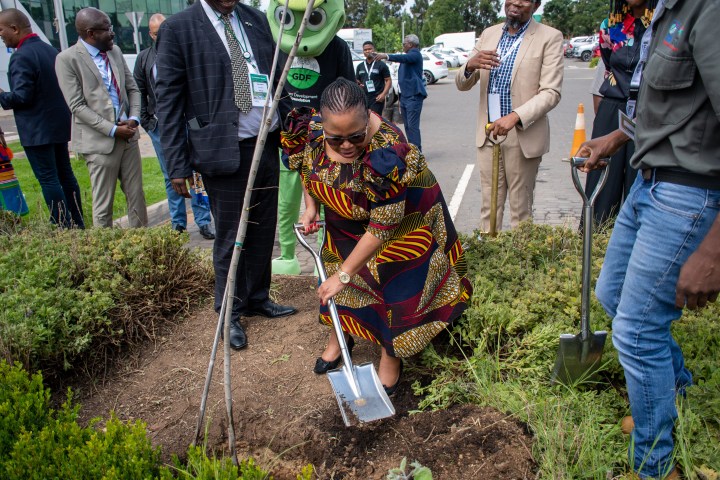
A debate at the second Local Government Environment Indaba in Kempton Park last week looked at reasons for the failure of municipalities to implement climate mitigation strategies — despite a number of policies on climate adaptation being in place for more than a decade.
Twelve years after South Africa published its first white paper on a national response to climate change, the country is still struggling with implementation.
One only has to look at the devastation the floods in KwaZulu-Natal caused last year, or, more recently, the impact of cyclone Freddy in Mozambique and Malawi to see how imperative climate adaptation is.
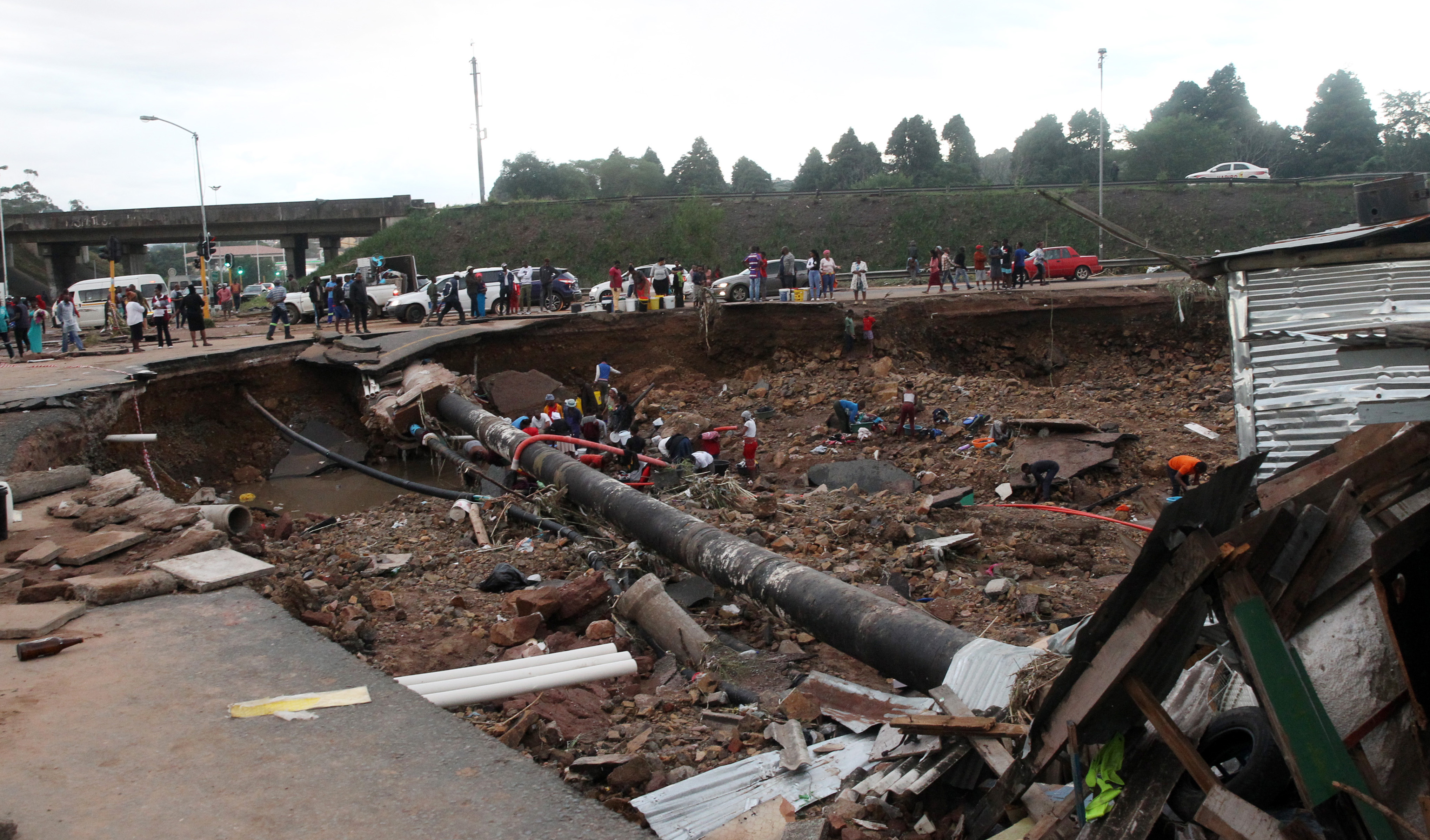
The devastation in Durban’s Reservoir Hills informal settlement after floods swept through their shacks in April 2022, leaving several residents missing and others homeless. (Photo: Mandla Langa)
South Africa is particularly vulnerable to climate impacts because the country is a climate change hotspot – that is, it is warming at twice the global average.
The 2011 white paper on National Climate Change Response acknowledges that South Africa, like other developing countries, is vulnerable to climate impacts. It presents the government’s vision for an effective response and a just transition to a climate-resilient society.
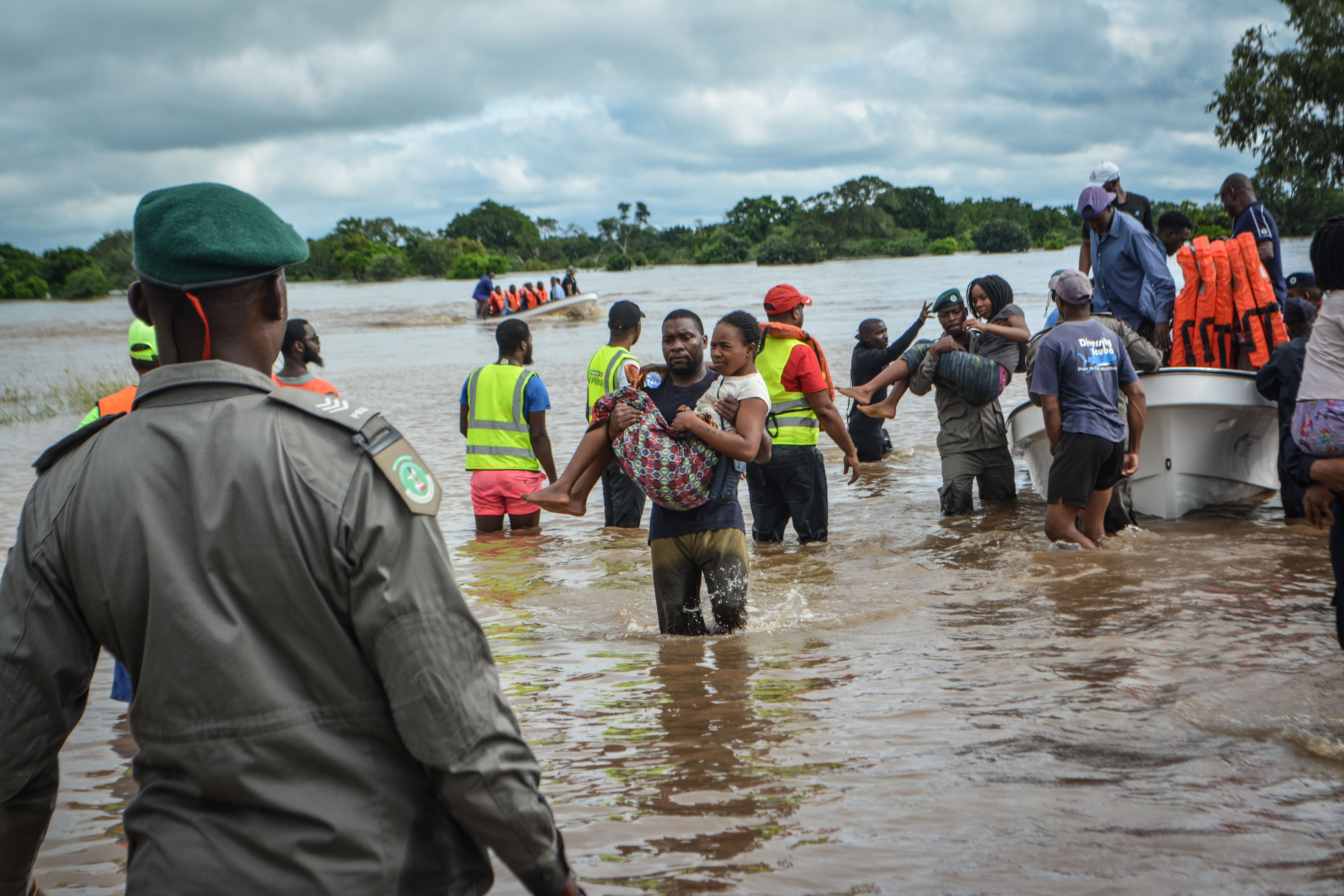
People are evacuated from flooded areas in Maputo, Mozambique, on 11 February 2023. More than 300 people were rescued by boat by authorities, companies and individuals who helped them from trees, roofs of houses or pieces of land that had become islands. (Photo: EPA-EFE / Luis Fonesca)
Off the back of that, the National Climate Change Adaptation Strategy, a policy directive to implement this vision, was developed by the Department of Forestry, Fisheries and Environment (DFFE). Most recently, the National Climate Change Bill is being developed within the context of South Africa’s National Development Plan and the United Nations’ Sustainable Development Goals.
Read more in Daily Maverick: Is SA’s Climate Change Bill good enough? It depends on who you ask
A Local Government Climate Change Support Programme was also launched in 2012.
Why are municipalities failing?
Telly Chauke, a climate change specialist who facilitated a debate on climate adaptation at the second Local Government Environment Indaba on Thursday, 23 March, said 12 years of local government support on climate change had made little difference.
Although climate science is increasing the understanding of our vulnerabilities every year, it’s been obvious for years that where people are placed (low-lying areas, banks of rivers, houses without drainage or erosion control) is not safe in the face of predicted climate events.
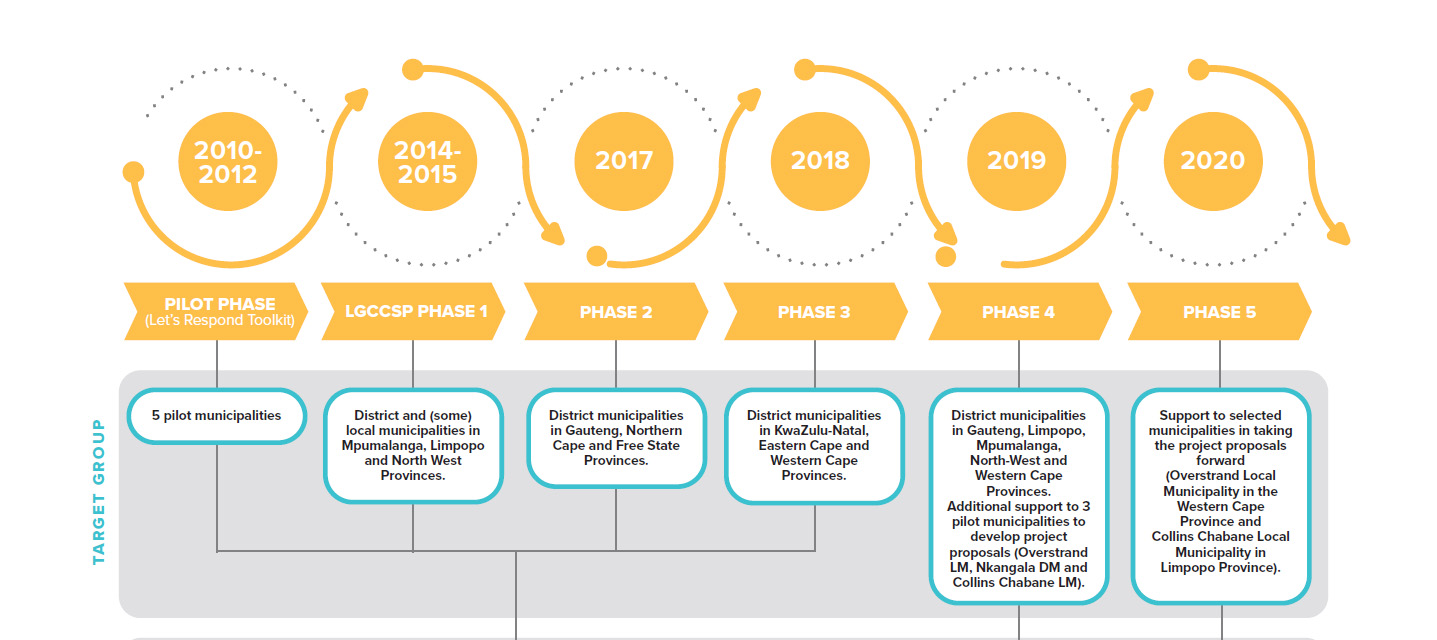
Climate scientist Francois Engelbrecht, who has been a lead author on multiple Intergovernmental Panel on Climate Change reports, emphasises that southern African governments need to make climate adaptation a priority.
“If we are not going to change the safety of our most vulnerable communities – if people continue to live right on riverbanks and along steep slopes where mudslides occur – the hard reality is that hundreds of thousands more people are going to die in the next 10 years, from events exactly like this one,” he said, referring to the more than 600 lives lost after cyclone Freddy hit Malawi and Mozambique.
Why is implementation so far behind?
Local governments are mainly responsible for implementing disaster risk management – and they face myriad challenges.
The majority of municipalities – especially those in rural areas that have smaller populations and where fewer people are employed and able to pay rates – are dependent on funding transfers from a national level, such as the National Treasury.
This funding is mostly earmarked for conditional grants such as infrastructure management. Funding is also prioritised for basic service delivery.
Despite needing the funds, much of this money is sent back to the Treasury because municipalities do not have the capacity to adequately plan for things like climate adaptation.
DFFE Deputy Minister Makhotso Sotyu told Daily Maverick at the indaba that one of the problems was that the Municipality Infrastructure Grant could previously be used only for infrastructure. It was being sent back by municipalities because they couldn’t use it for that purpose, or couldn’t adequately plan for it.
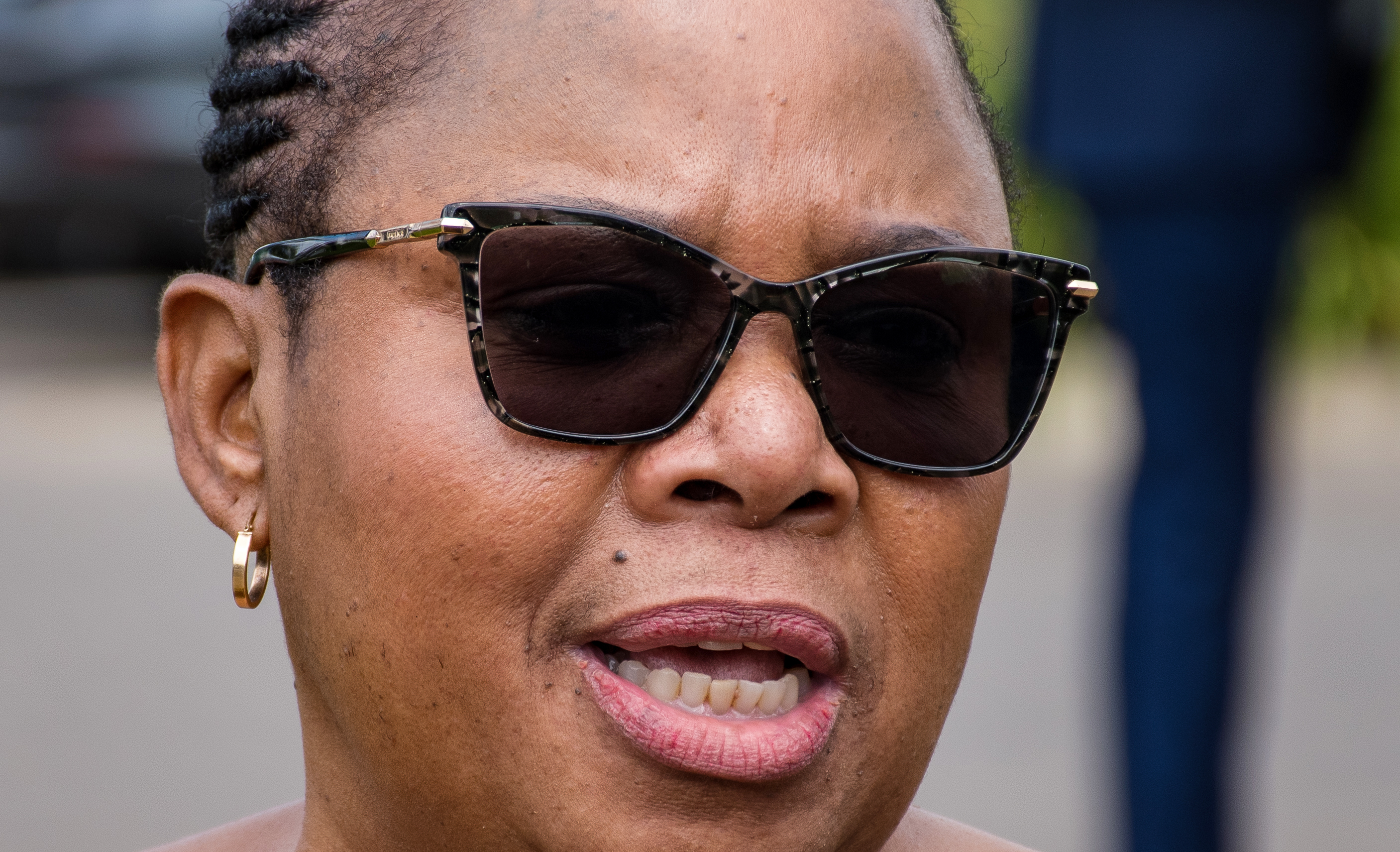
Deputy Minister of the Department of Forestry, Fisheries and Environment Makhotso Sotyu at the second Local Government Environment Indaba, in Kempton Park, Gauteng, on 23 March 2023. (Photo: Julia Evans)
She said the DFFE, with the Department of Cooperative Governance and Traditional Affairs, had approached the Treasury and had influenced changes to the grant policy, which can now be used for other necessities. Sotyu said municipalities could now, for example, use the grant to purchase yellow fleet trucks for refuse collection, which was necessary for waste management.
“The call by the President @CyrilRamaphosa is for all of us to go back to basics and ensure that our communities are serviced as it is expected of us all.” – Deputy Minister Sotyu @SALGA_Gov#EnvironmentalSustainability#LocalGovTodayEveryday#InspiringServiceDelivery
— Environmentza (@environmentza) March 23, 2023
“But still in that area we also discovered that other municipalities are not even aware today that they can use that funding for buying the yellow fleet,” said Sotyu.
“It means we have a lot of work to do as a department to make sure that that money does not go back to the National Treasury. They must utilise that money for the correct purpose.”
Sotyu said the Climate Change Bill, once passed, would regulate where houses could be built and would make it necessary for environmental and structural assessments to be conducted.
“You will find that most of the communities that were affected [by KZN floods] were placed where human beings can’t live or where you can’t build houses,” she said.
Not taken seriously
Another problem is that municipal climate change funding is not mandated because it’s not in the law.
Thabang Phago, a climate change specialist from the DFFE, said this meant climate funding was not always taken seriously by municipalities.
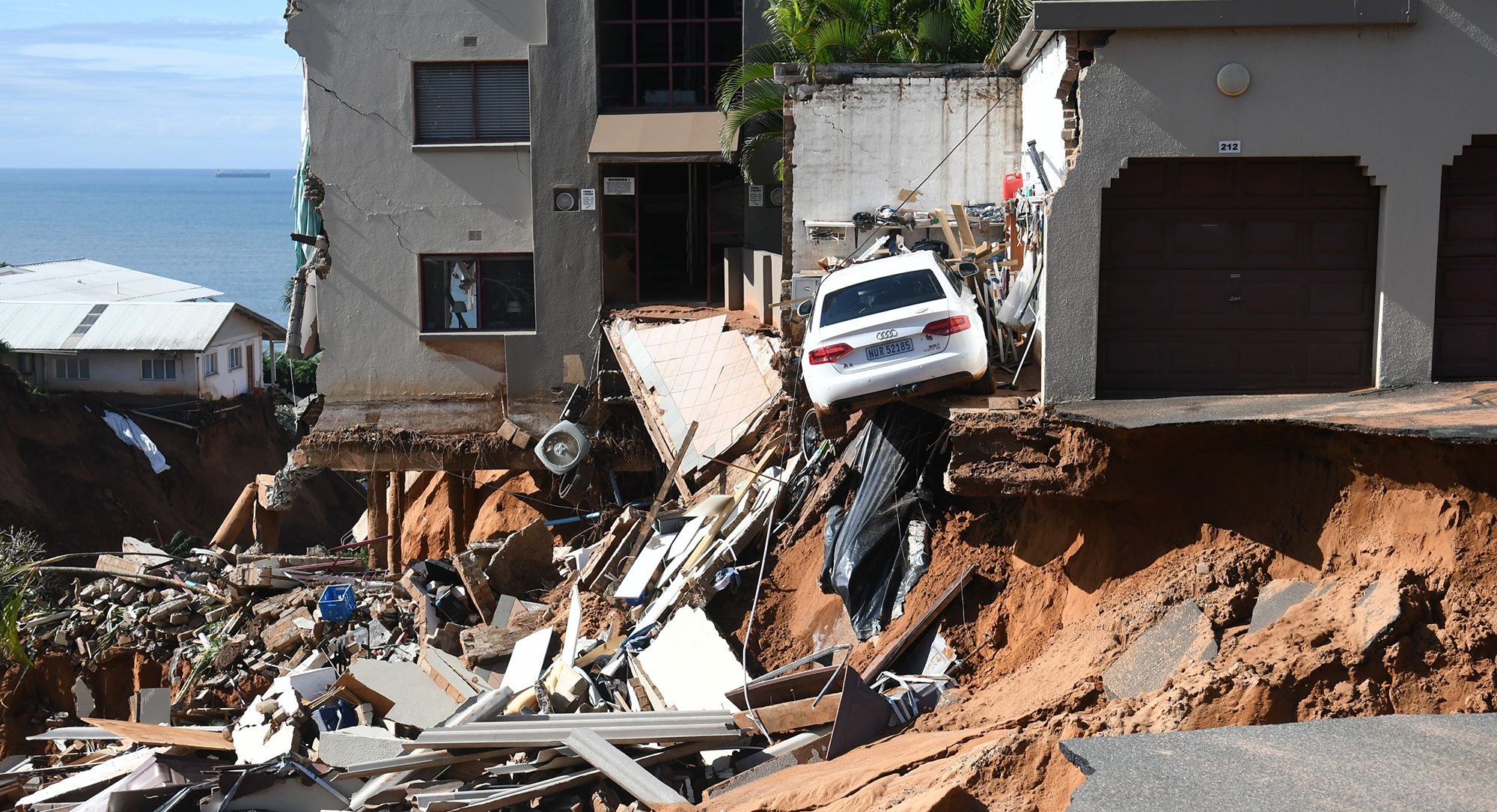
A motor vehicle hangs precariously on the edge of a donga in northern Durban on 23 May 2022 after heavy downpours. (Photo: Gallo Images / Darren Stewart)
The Climate Change Bill could lead to more funding from the ficus for climate adaptation because it would be legally mandated.
However, Brandon Abdinor, acting programme head of pollution and climate change at the Centre for Environmental Rights, told Daily Maverick that the bill didn’t clearly stipulate support for funding.
“The bill places a large burden on municipalities, provinces, sector departments and the minister, without making adequate provision for capacity-building and funding,” he said.
“Financial support, technology development, skills transfer and capacity-building are key aspects of the Paris Agreement, yet these issues – which are crucial for the effective functioning of climate change mitigation and adaptation measures – are entirely absent from the bill.
“In other words, climate change response may well have to compete with other government obligations. Fair enough to a point, but given the implications, we feel it should have dedicated support set out in the bill,” Abdinor said.
Phago emphasised that a lot of climate change work in South Africa was mostly donor-funded through bilateral or multilateral agreements (such as the Adaptation Fund and the Green Climate Fund). This made the funds hard to access and processes very slow.
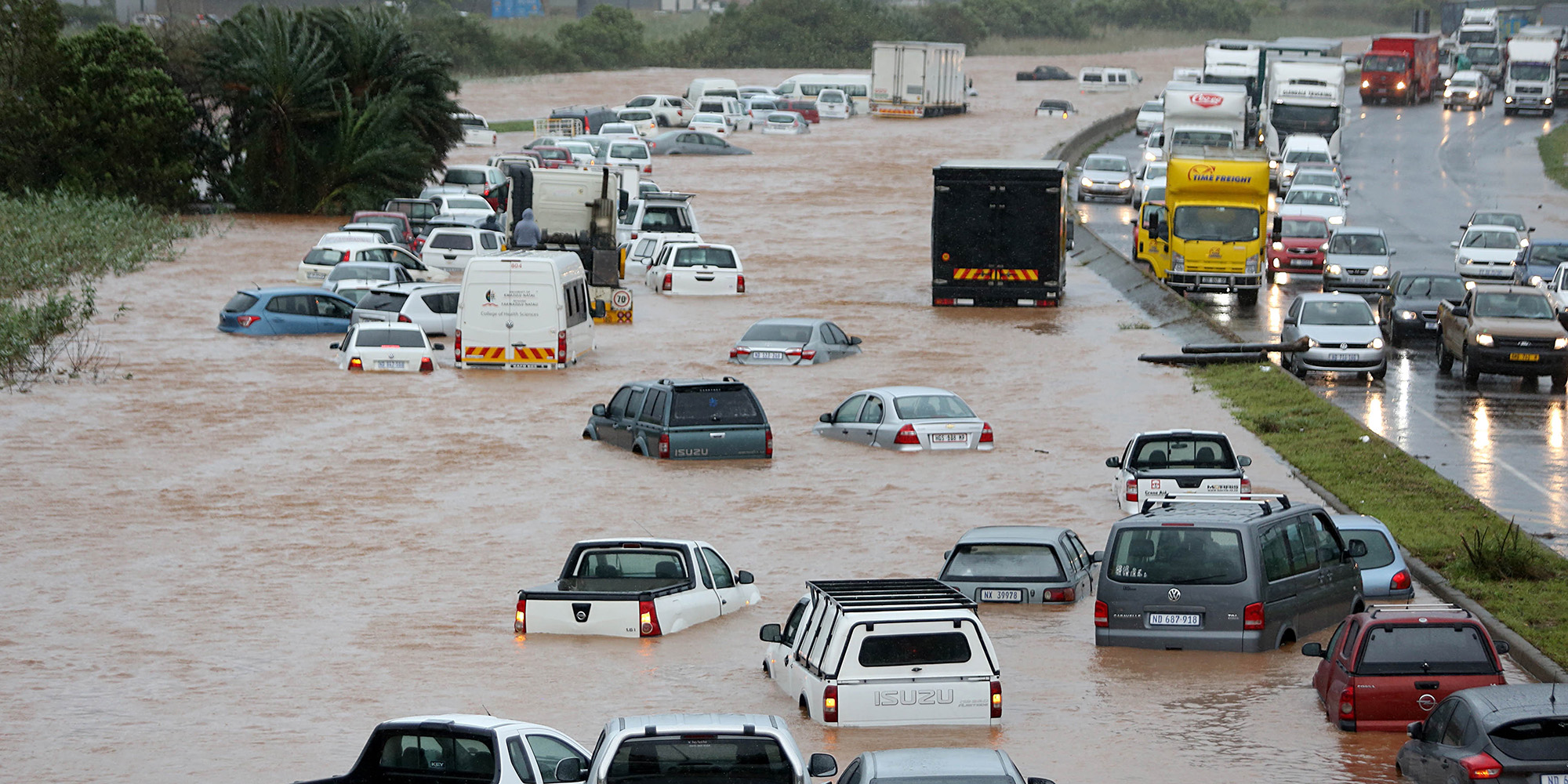
Stranded cars during floods in Durban on 10 October 2017. (Photo: Gallo Images / The Times / Thuli Dlamini)
The World Bank Group – the largest multilateral financier of climate action in developing countries, having delivered a record $31.7-billion for climate-related investments in the 2022 fiscal year – recently launched its Country Climate and Development Reports, recommending that South Africa develop a new financing model that was more flexible and responsive to climate change impacts.
“Subnational governments can be supported through earmarked, revolving funds which target climate change activities and are replenished based on annual targets/key performance indicators met,” the report says.
“While conditional grants can be amended to support adaptation and mitigation measures through the introduction of climate-specific criteria.”
Capacity building
Municipalities are supposed to be in charge of disaster risk management, but many don’t have the climate literacy or capacity building to understand climate change issues. This means climate adaptation strategies developed by the DFFE aren’t being implemented.
“There is a lot of work that we need to do because the climate change language is very complex,” said Sotyu, adding that the department worked with municipalities and the South African Local Government Association to make the language simple, “so that they can understand what is meant by climate change”.
Sotyu said, however, that the national department only became involved on a provincial or local level if it was requested. “Most of the time, we won’t know that there are challenges until … the municipalities come to us.”
In a commission plenary about climate change during the indaba, Phago, who runs the DFFE’s adaptive capacity facility programme, joked that the programme “is like the child that is born out of wedlock – we are in the system, but we are not formally in the system” because they were donor funded.
After a long and heated debate with municipality members from across the country during the session, Phago told Daily Maverick: “The capacity issue has always been a problem. You heard it in the debate. You have to be careful about donor funding that you’re responsible for, that you need to account for.
“If you’re putting money on the ground, is it going to get to the ground? And is it going to what it was designed for?” DM/OBP
Climate change terminology
If you’re not familiar with climate jargon, here’s a crash course.
Climate mitigation is about dealing with the source of climate change, either by decreasing our production of fossil fuels or increasing the sinks that can absorb them (which is why everyone is so excited about solar power or planting trees).
Climate adaptation is about dealing with the climate impacts that are already here and are projected to increase.
Scientists have proved that because of anthropogenic climate change (yes, the climate varies naturally, but the warming that has occurred since the pre-industrial era is rapid and cannot be explained by any natural process), extreme climate events such as heat waves, extreme rainfall, flooding and droughts have started to and are projected to increase in frequency and intensity.






















 Become an Insider
Become an Insider
Comments - Please login in order to comment.